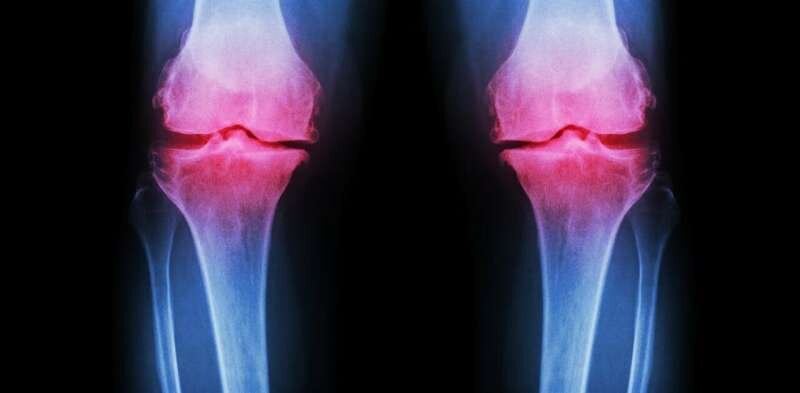Injection of Autologous Mitochondria to Regenerate Osteoarthritic Cartilage in Rats

Injection of Autologous Mitochondria to Regenerate Osteoarthritic Cartilage in Rats
par Jeremy Azar, Yu Si Chen, Elizabeth Youjin Youn et Matthew Zhu
Année préparatoire au doctorat en médecine, Faculté de médecine, Université de Montréal
In 2020, over 151 million people globally suffer from osteoarthritis (OA) [1], the most prevalent cause of disability in older adults [2]. Presently, no treatment can reverse OA cartilage damage. Current research suggests that mitochondrial dysfunction plays a key role in OA by decreasing extracellular adenosine levels, which dysregulates chondrocyte homeostasis [1]. A recent study tackled this issue by injecting adenosine in OA rodent knees, which reversed cartilage damage by binding to the anti-inflammatory receptor A2A3. However, this method required weekly injections and did not fix the root of the issue. We propose mitochondrial autotransplantation in OA chondrocytes as a sustainable approach to increasing the production of ATP, which is then transported to the extracellular matrix and broken down into adenosine [3]. It has already been demonstrated that mitochondria from bone marrow mesenchymal stem cells (BM-MSC) can be taken up by OA rat chondrocytes in vitro [4] and that ischemic rabbit cardiomyocytes can integrate isolated mitochondria injected in vivo [5]. We hypothesize that injection of mitochondria isolated from autologous BM-MSC into OA rat knees will result in increased extracellular adenosine, promoting cartilage regeneration. The isolated mitochondria will be tagged with LV-Mito-GFP4, an immunofluorescence marker, for later analysis. We expect a successful mitochondrial uptake that will ensure a steady and sufficient supply of extracellular adenosine, suggesting a long-term effect on regenerating OA cartilage. Treatment effectiveness will be measured through weekly comparison of OARSI scores, which assesses cartilage damage severity [6]. If successful, mitochondrial transplantation could be further explored as a regenerative approach to treating osteoarthritis.
Key words: osteoarthritis, regenerative medicine, mitochondrial transplantation
Références
1. Corciulo, C., Castro, C.M., Coughlin, T. et al. Intraarticular injection of liposomal adenosine reduces cartilage damage in established murine and rat models of osteoarthritis. Sci Rep 10, 13477 (2020). https://doi.org/10.1038/s41598-020-68302-w
2. Wittenauer, Rachel, Lily Smith, and Kamal Aden. Background paper 6.12 osteoarthritis. World Health Organisation (2013).
3. Corciulo, C., Lendhey, M., Wilder, T. et al. Endogenous adenosine maintains cartilage homeostasis and exogenous adenosine inhibits osteoarthritis progression. Nat Commun 8, 15019 (2017). https://doi.org/10.1038/ncomms15019
4. Wang, Rui, et al. Mitochondrial transfer from bone-marrow-derived mesenchymal stromal cells to chondrocytes protects against cartilage degenerative mitochondrial dysfunction in rats chondrocytes. Chinese Medical Journal (2020). doi: 10.1097/CM9.0000000000001057.
5. Norat, P., Soldozy, S., Sokolowski, J.D. et al. Mitochondrial dysfunction in neurological disorders: Exploring mitochondrial transplantation. npj Regen Med 5, 22 (2020). https://doi.org/10.1038/s41536-020-00107-x
6. Glasson, S. S., et al. The OARSI histopathology initiative–recommendations for histological assessments of osteoarthritis in the mouse. Osteoarthritis and cartilage (2010). https://doi.org/10.1016/j.joca.2010.05.025
Image de couverture : https://medicalxpress.com/news/2019-02-stem-cell-treatments-arthritic-knees.html





